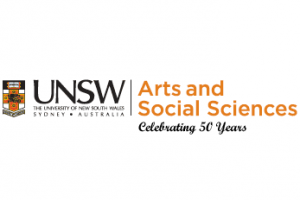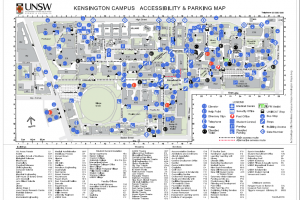
Keywords
Fields of Research (FoR)
Philosophy, Aesthetics, Phenomenology, Cinema studies, Political theory and political philosophy, British and Irish literature, History of philosophySEO tags
Biography
I have been at UNSW since 2006, first as a Vice-Chancellor's postdoctoral fellow, then as an ARC Australian Research Fellow (2007-2011), before taking up a combined research-teaching position in Philosophy in the School of Humanities and Languages.
I completed my undergraduate studies at the University of Queensland, undertook an MA in Comparative Literature and Critical Theory at Monash University, and was then awarded my Ph.D. in Philosophy...view more
I have been at UNSW since 2006, first as a Vice-Chancellor's postdoctoral fellow, then as an ARC Australian Research Fellow (2007-2011), before taking up a combined research-teaching position in Philosophy in the School of Humanities and Languages.
I completed my undergraduate studies at the University of Queensland, undertook an MA in Comparative Literature and Critical Theory at Monash University, and was then awarded my Ph.D. in Philosophy from the University of Tasmania in 2002. During my doctoral studies I spent nine months in Innsbruck as an OeAD scholar and six months in Potsdam as a DAAD scholar. I have since then been a visiting research fellow at the Institute for Advanced Studies in the Humanities at the University of Edinburgh and a resident associate at the National Humanities Center in North Carolina.
Apart from the publications listed below, I have also translated two books: Christoph Menke, Tragic Play: Irony and Theater from Sophocles to Beckett (New York: Columbia University Press, 2009) and Alexander García Düttmann, Philosophy of Exaggeration (London: Continuum, 2007).
My Qualifications
MA in Comparative Literature and Critical Theory (Monash), PhD in Philosophy (UTas)
My Research Activities
I am currently engaged in a book project on the philosophy of fiction, drawing on the concepts of "world" in Kant and Heidegger.
Forthcoming publications:
“Heidegger’s Technology Essay and the Uncanniness of Τέχνη”, Human Studies (accepted January 2026)
“The Underlying Agreement of the Sensus Communis: Gadamer and Habermas on Tradition”, Études Phénoménologiques – Phenomenological Studies (accepted January 2026)
My Research Supervision
Supervision keywords
Areas of supervision
Aesthetics, phenomenology, film and philosophy, literature and philosophy.
I welcome inquiries from prospective research students interested in working in one or more of these broad areas.
Currently supervising
Ph.D.: Arjun Ravichandran on Hegel, Heidegger, phenomenology and time
Ph.D.: Finnegan Hassey on Arendt's concept of nationalism (joint supervisor: Jess Whyte)
MA: Sofia Kartavtseva on Sade and aesthetics
My Engagement
My Teaching
I teach political philosophy, aesthetics and the history of German philosophy.
In 2026 I will be teaching in T1 ARTS2367 "Thinking Through Art" and ARTS3360 "Examining Pivotal Texts" and in T2 ARTS2384 "Political Philosophy".

